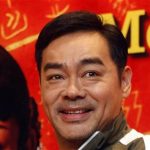DHAKA, Bangladesh (AP) — The future of Bangladesh depends on two men who don’t live there, both heirs apparent to the South Asian nation’s most powerful political dynasties.

One is a technology consultant who lives in the U.S. with his American wife and young daughter. The other is reportedly studying for a law degree in London, living in self-imposed exile because he faces corruption charges at home.
The consultant has been traveling the small towns of Bangladesh in recent weeks, stumping for his mother’s re-election. The law student is meeting with powerful political aides in Saudi Arabia, helping plan his family’s return to power.
But give them a few years, and political observers here say either could become prime minister of Bangladesh, which has been ruled by their two families since the country’s 1971 independence from Pakistan.
Sajeeb Wazed Joy, 42, the son of Prime Minister Sheikh Hasina, and Tarique Rahman, the 46-year-old son of opposition leader Khaleda Zia, have emerged as the country’s most powerful political heirs.
“Their influence is huge,” said Hassan Shahriar, a political analyst in Bangladesh. “It’s almost impossible to rise to the top coming from outside these families in the current context.”
With national parliamentary elections due by early next year, Joy and Rahman are key figures in early campaigning for their mothers, and are earning serious publicity for themselves.
By all indications, the men are headed for powerful roles in the country’s two major political parties — Hasina’s Bangladesh Awami League and Zia’s Bangladesh Nationalist Party.
The seeming inevitability of the sons’ rise rankles some in Bangladesh, who see it as fundamentally undemocratic.
“This is not a kingdom, why would they come after their mothers?” asks college student Mazharul Islam. “Are there no other people with brains and guts to rule us? This is ridiculous.”
But political dynasties are a fact of life in South Asia. Families of independence leaders, first presidents or descendants of longtime leaders often have immense influence in politics. In Bangladesh, Hasina and Zia have headed their parties for decades without any open challenges.
“Look at India, Sri Lanka or Pakistan,” Shahriar said. “Bangladesh is no different. Cronies surround these families, back them and strengthen their hands to get slices of power.”
In Bangladesh — a nation struggling to overcome extreme poverty, vicious politics and a recent string of horrific accidents linked to the garment industry — photos of Joy and Rahman regularly feature on party posters along with their mothers.
In recent weeks, Joy has toured the country, earning a rock-star welcome in towns where supporters lined up along highways and chanted party slogans. Scrums of reporters followed his motorcade.
“You are the future (of the country). You are the future leaders of this nation. I will always be with you,” Joy, who lives in the U.S. state of Virginia, told a crowd of cheering students during the tour, aimed at boosting support for his mother.
“One day he will be prime minister. Why not?” said Mahbubul Haque Shakil, an aide to Hasina. “This is a democracy. If people want, he will surely be.”
Rahman, though he lives in Britain, plays a major role in deciding who will get nominations for the country’s 300 parliamentary constituencies. Rahman — whose mother was prime minister from 2001 to 2006 before becoming an opposition leader — has campaigned for her in the past and reportedly hand-picked several Cabinet members.
Rahman left the country in 2008 with permission from a court on medical ground after his mother’s five-year term expired amid chaos on the streets over elections. A caretaker government backed by the military arrested him and allegedly tortured him in custody.
He holds the title of senior vice president of Bangladesh Nationalist Party. His rise comes despite allegations of corruption that could lead to his arrest if he returns to Bangladesh. A special court indicted Rahman in absentia along with one of his businessman friends in 2011. Prosecutors say Rahman and his friend received $2.73 million in bribes while his mother was prime minister. Another court issued an arrest warrant against Rahman accusing him of masterminding grenade attacks on a rally of Hasina when she was the opposition leader in 2004. At least 24 people died in that attack in Dhaka and Hasina narrowly escaped unhurt. Hasina’s party says the attack was designed to eliminate political opponents.
Zia’s opposition party has denied all charges against Rahman, saying they are aimed at destroying her family’s reputation. If Zia returns to power, it would pave the way for her son’s return to Bangladesh.
For now, he is working closely with his mother, but from a distance. He recently addressed some party meetings in London and visited Saudi Arabia to attend another.
“It’s just a matter of time. He will return as a hero,” said Jamilur Qadir, one of his supporters. “He is the son of a former president. He is the son of a mother who did a lot for the nation as prime minister. I am sure he will come out clean and change things with good judgment.”
Zia entered the political fray after her husband, President Ziaur Rahman, was killed in a coup in 1981. Hasina, the elder daughter of independence leader Sheikh Mujibur Rahman, entered politics several years after her father and most of her family were assassinated in a 1975 coup.
Together, the women overthrew former president and military dictator H.M. Ershad and restored democracy in 1990. Each has served as prime minister since then.
Now, the two are bitter rivals with their eyes toward the future — both their country’s and their sons’.
Dynasties are not necessarily bad, the political analyst Shahriar said — as long as good leadership emerges. In any case, other candidates for power have little hope of rising to the top.
“There are talented people, they have potential,” Shahriar said. “But they don’t have family connections.”





